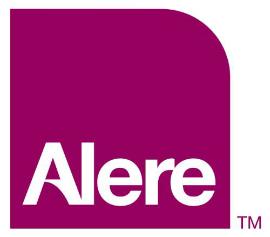The makers of the INRRatio® and INRatio® 2 PT/INR Monitor system have initiated an urgent correction to inform users of these devices in the U.S. about certain medical conditions that should not be monitored with the system. The company, Alere, explains in its December 8 press release that, in certain cases, the INR test result a person might get using the INRatio® and INRatio®2 PT/INR Monitor system may be significantly lower than the result one might get using a laboratory method of INR testing, or a reference INR system. Alere says that this issue can occur when a patient has certain medical conditions or if the instructions for performing the test are not followed.
According to Alere, The INRatio® and INRatio®2 PT/INR Monitor system should not be used on patients with any of the following conditions:
- Anemia of any type with hematocrit (the volume percentage or red blood cells in the blood) less than 30%
- Any conditions associated with elevated fibrinogen (a protein that is essential to blood clotting) levels including:
- Acute inflammatory conditions (examples may include acute viral or bacterial infections such as pneumonia or influenza)
- Chronic inflammatory conditions (examples may include rheumatoid arthritis, Crohn’s disease, ulcerative colitis, infectious liver diseases such as hepatitis, or inflammatory kidney diseases such as diabetic nephropathy and glomerulonephritis)
- Severe infection (e.g., sepsis)
- Chronically elevated fibrinogen for any reason
- Hospitalized or advanced stage cancer or end stage renal disease patients requiring hemodialysis
- Any bleeding or unusual bruising, clinically observed or reported by the patient
Patients with any of the conditions listed above should immediately be transitioned to a laboratory INR method for monitoring their INR and warfarin therapy.
If you use the INRRatio® and INRation® 2 PT/INR Monitor system speak to your healthcare professional about whether or not this information applies to you.
In addition, Alere also recommends that:
- Patients have periodic verification of their INR using a laboratory INR method. Any patient having a significant discrepant low result on the INRatio® and INRatio®2 monitor system as compared to the plasma-based laboratory INR method should immediately be transitioned to an alternative method for monitoring their INR and warfarin therapy. Significant discrepancy in INR results may lead to a delay in an urgent medical decision to reverse a supratherapeutic INR level following the established guidelines for monitoring warfarin therapy. Such discrepancies are of particular concern when the erroneous INR result is within the therapeutic range but the actual value is supratherapeutic, i.e., when the actual INR value is 6 or greater.
- Patients be tested to verify that their hematocrit falls within the range of 30% to 55%. Patients with hematocrit outside this range should be immediately transitioned to a plasma-based laboratory INR monitoring method.
Alere is working on an improvement to the current INRatio® and INRatio®2 meter, which will serve to mitigate further the potential for these discrepant results. Alere has reported these concerns to the U.S. Food and Drug Administration and is conducting a thorough investigation into these events.
If you use the INRRatio® and INRation® 2 PT/INR Monitor system and have questions regarding this recall, you can contact Alere at 1-877-929-2579. Alere also advises that for additional information about the recall, including a list of product part numbers affected by the recall, you can go to www.inr-care.com.
This information was gleaned from the Alere press release, distributed on Monday, December 8, 2014, regarding this matter. A copy of this press release appears at the following link: http://www.fda.gov/Safety/Recalls/ucm426166.htm






